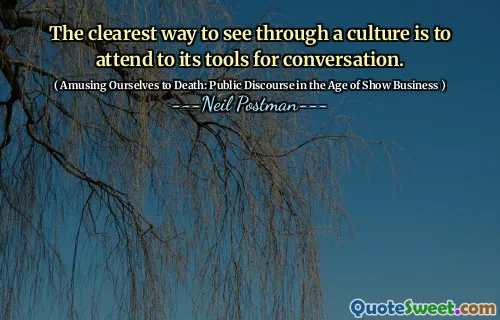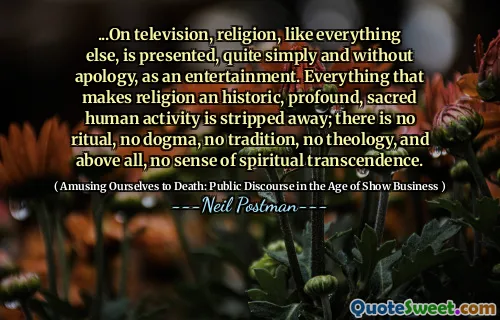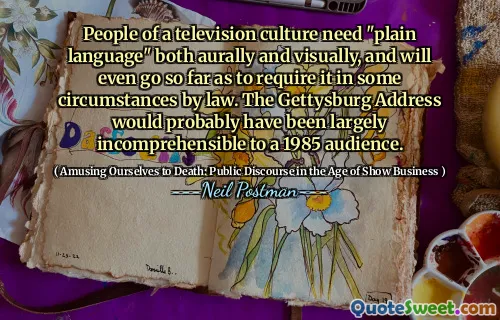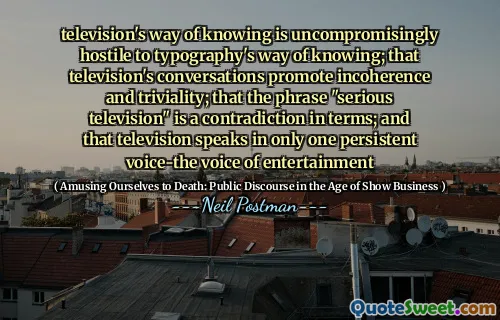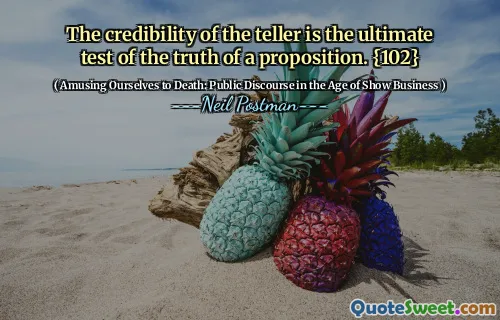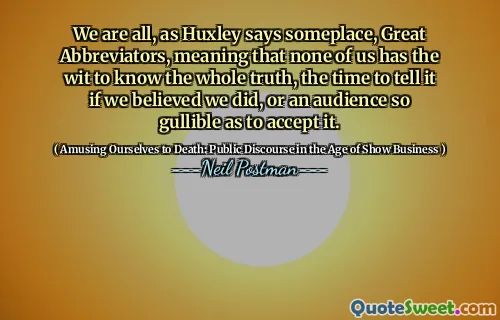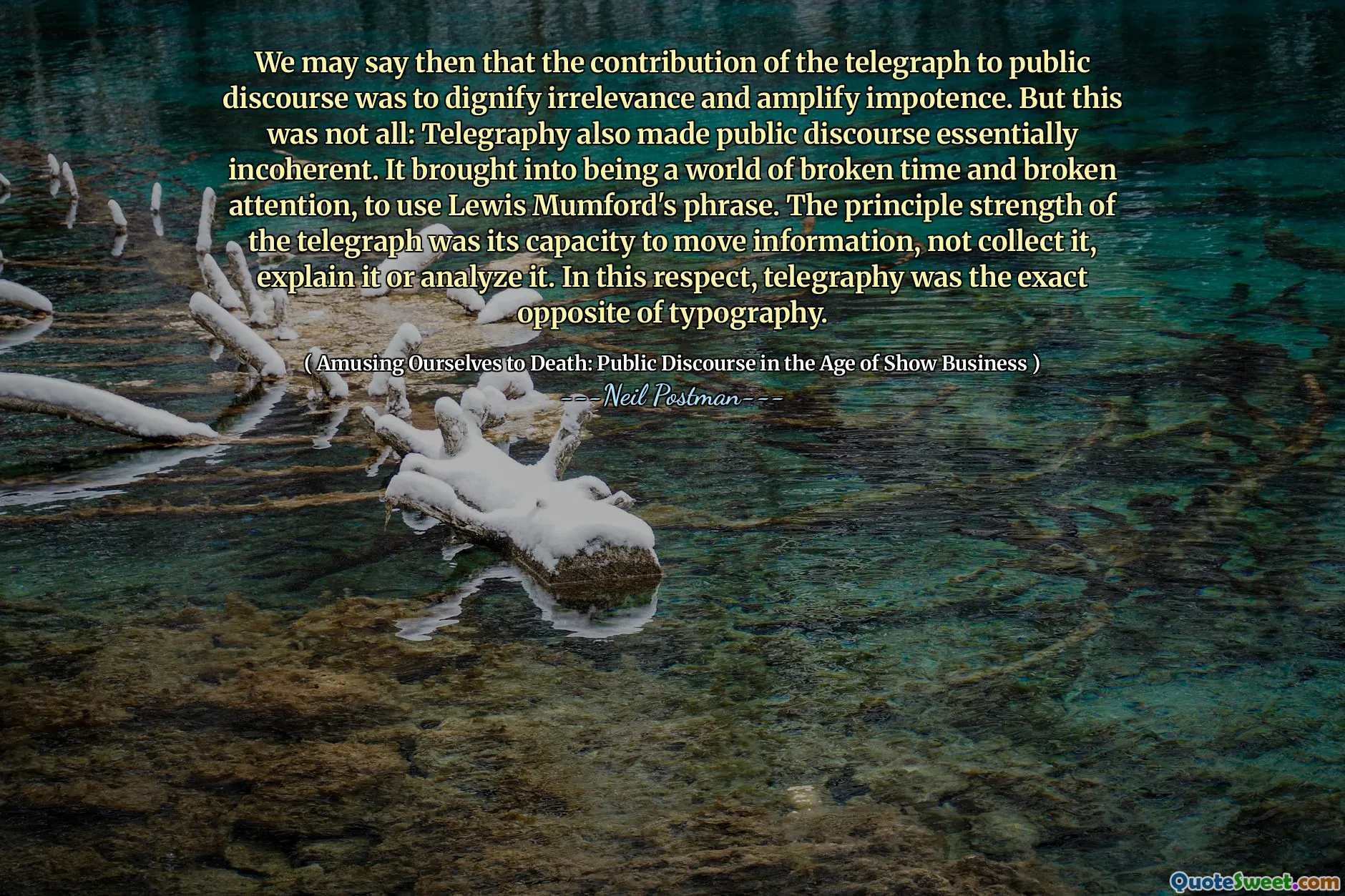
We may say then that the contribution of the telegraph to public discourse was to dignify irrelevance and amplify impotence. But this was not all: Telegraphy also made public discourse essentially incoherent. It brought into being a world of broken time and broken attention, to use Lewis Mumford's phrase. The principle strength of the telegraph was its capacity to move information, not collect it, explain it or analyze it. In this respect, telegraphy was the exact opposite of typography.
Neil Postman, in his book "Amusing Ourselves to Death," argues that the telegraph significantly impacted public discourse by both enhancing triviality and highlighting a sense of powerlessness. It transformed communication in a way that often favored irrelevance over substance, leading to a discourse characterized by a lack of coherence. The telegraph's ability to transmit information swiftly did not allow for deep engagement or thoughtful analysis, thus altering the way information was consumed and understood.
Furthermore, Postman notes that telegraphy created a fragmented experience of time and attention. Unlike typography, which promotes a structured and analytical approach to information, the telegraph's strength lay solely in its speed of information transmission. This shift contributed to a breakdown in the coherence of public discourse, as communication became more about rapid delivery than meaningful dialogue, exemplifying a departure from thoughtful engagement with ideas.
